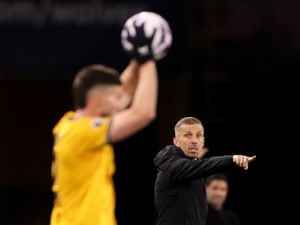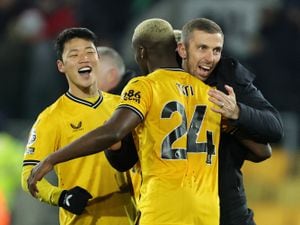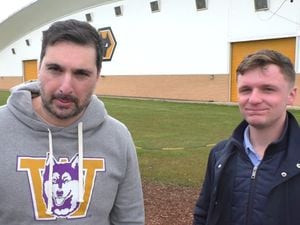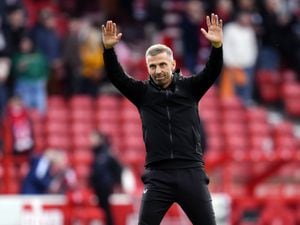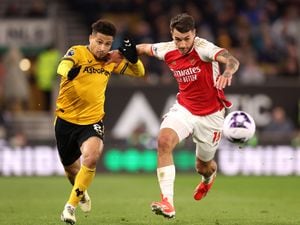Paul Berry: Dream debut to dream over – in just 48 hours
Daniel Wright put on his goalkeeping gloves and glanced around the dressing room.
Sat alongside was George Elokobi. Across the way, Kevin Foley and Christophe Berra.
Elsewhere, Michael Kightly, Matt Jarvis, Dave Edwards, Stephen Ward and Sam Vokes.
A group of Wolves’ Championship heroes, not long back from pre-season in Australia, who were preparing for the Premier League.
Ronald Zubar was there too, ahead of his first appearance on British soil in a Wolves shirt following a big money move from Marseille.
And then there was Wright.
Plucked, at 17 years of age, out of Academy training that very morning to make his own senior bow, in a pre-season friendly at Port Vale.
The stuff of dreams for any teenager, let alone one from Northern Ireland who had crossed the water with a determined ambition to become a professional footballer.
Wolves lost 2-1, but Wright acquitted himself well.
“One of the plusses was Danny Wright, who I thought was great,” said boss Mick McCarthy.
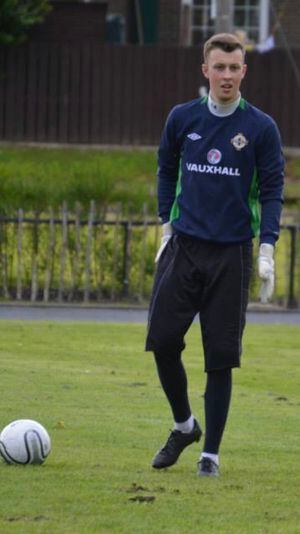
High praise indeed, adding to the general sense of promise and positivity around a goalkeeper already capped at junior level for his country.
And yet, just as soon as opportunity arrived, so cruelly was it to be taken away.
Less than 48 hours after a feeling of complete debut elation, Wright was tearfully walking out of a meeting with a consultant to be told he had a life-threatening heart condition, and should never play football again.
A dream in tatters, a life forever changed.
“I can still remember it all now, clear as day,” Wright recalls.
“The consultant was a bit dour about it all but it’s difficult to imagine what it must be like to break that sort of news to a 17-year-old who thought he had everything in front of him.
“I kept waiting for the ‘but’.
“’Yes you have a problem, but we can do an operation’, or but we can do something else’.
“That ‘but’ never came.
“He told me that if I carried on doing what I was doing, carried on playing in goal and trying to make football my career, it would kill me.
“By now I was in floods of tears and I had to walk out, leaving my Mum and Dad to listen to the rest and learn how this was all going to affect their son, for the rest of his life.”
An MRI scan the following day confirmed the devastating diagnosis, and, just like that, Wright’s fledgling football career was at an end.
Wolves did everything they could to make the exit formalities as smooth and painless as possible.
“I remember the final meeting when they were telling me I’d been brilliant and a great pro and that they were really going to miss me,” says Wright.
“I think that was the moment when it really hit home, that it was over.”
Later, whilst waiting for a lift to the airport to catch his flight home, Wright made a final and poignant farewell at the Compton training ground.
“All of the players were at lunch, and so I took one last walk out to the centre circle of the Academy pitch where I had played so many games.
“I had a little cry to myself before leaving - it was all a bit overwhelming really.”
If all this is painting an overly-despondent picture of a career so brutally ended before it had chance to properly begin, then perhaps it shouldn’t.
And neither would Wright want it to.
For 12 months, he lived his dream, and, despite the ending, remembers that time back in 2008/09 with huge affection.
Having already featured for Northern Ireland Under-17s, Wright impressed whilst representing Glenavon at the Foyle Cup, and experienced former keeper Alan Fettis, who had been working with Wolves Academy, arranged a trial.
Aston Villa and Leicester were also interested, but, as soon as he checked in at Wolverhampton, his mind was made up.
“I loved it from the moment I arrived, in fact from the moment I was picked up by the driver at the airport,” says Wright.
“I have always been a real family person at home, and Wolves as a club just had that family feel, from Kevin (Thelwell) and Gareth (Prosser) who were the Academy coaches, right through to everyone else.”
Thelwell’s first impressions of this bright young keeper were promising but, after Wright showed signs of fatigue at the end of the fortnight, Wolves’ future Sporting Director decided to take one more look.
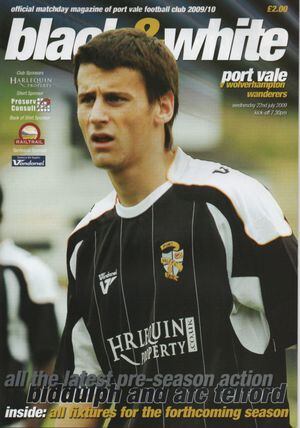
Wright was brought back over for an Under-16 game against Manchester United, posted another impressive performance, and was offered a scholarship.
The first season went equally well, becoming a regular for the Under-18s after Christmas and involved in some excellent wins over the likes of Liverpool and Manchester United.
A ‘greenstick’ fracture of the wrist consigned Wright to the sidelines for a short time but, returning for that pre-season of 2009, all looked good.
He headed to Sweden with the Under-18 team which would go on to win a prestigious youth tournament – the Gothia Cup - but only with Wright having already suffered the first warning sign of what was to follow.
Running to collect balls in at the end of a training session, he felt “a wee bit fluttery”, unable to get his breath and suffering from palpitations, but it passed quickly, leading to theories, on a baking hot day, that he was severely dehydrated.
Over in Sweden, Wolves made progress out of the group stage, but it was in the quarter final that potential disaster struck.
“Things had been going well and I was in good form out in Sweden,” says Wright, who had already benefited from working alongside the likes of Wayne Hennessey, Carl Ikeme and Marcus Hahnemann during pre-season.
“We had got to the quarter final, and I remember making probably the best save I had ever made.
“In the second half, I started feeling those palpitations again.
“I came and took a cross, and rolled the ball out, and suddenly I could see double of everything.
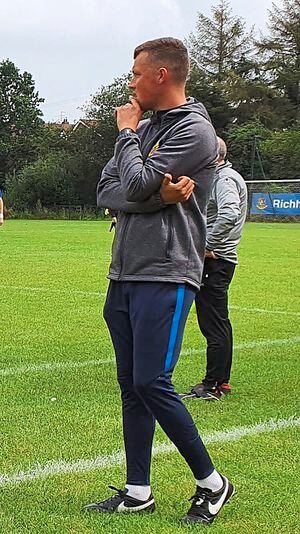
“I looked down at my shirt, and the Wolves badge was actually vibrating my chest was beating that fast.
“I quickly signalled to Phil Hayward, who was the Academy physio, and he came around to the back of the goal and, next time the ball went out, I went down.
“Phil came on, put his heart rate monitor watch on me, and I will never, ever forget what happened next.
“Phil looked at me, looked at the watch, looked at me again, and the watch.
“My heart rate was going at 348, it was crazy, and obviously very serious.
“Thankfully with the condition I had, with ventricular fibrillation, the heart rate can actually come out of that rhythm itself because if it doesn’t, it leads to shock.
“Mine came out of that rhythm and thankfully my heart-rate dramatically reduced.”
Even now, Wright remains hugely appreciative and grateful for the care and support he received from Hayward, Nick Loftus and all of the Academy staff on the trip.
“That was my Gothia Cup over,” he reveals with almost casual understatement as, despite him returning to normal health very quickly, Hayward – who stayed with him that night to monitor his condition – insisted he took no further part.
“And yet part of me, even with what happened, was gutted,” adds Wright.
“I was playing so well, and the lads went on to win it with Easty (Daniel East) going in goal and saving some penalties in the shootout in the final.
“At the same time, I look back and I am so grateful that I was taken out after what happened that day.
“It could all have been so, so different…”
Wright’s voice tails off.
Amid his openness and candour when looking back on such a life-changing time, there are clearly still painful memories.
He lay on his bed that night, in tears, thinking his career may be put on hold for six months, maybe a year.
If only that was all it had been.
On returning back to Wolverhampton, the first medical appointment with a cardiologist suggested that this was ‘not drop-dead material’.
And, with further investigation planned, that prognosis was enough to leave the door open for that first team debut.
“I was training the next day with Easty and the Academy goalkeeping coach Andy Mulliner,” Wright explains.
“Because the senior lads weren’t in, I pinched a bag of the first team balls and went down to the goalkeeping area.
“All of a sudden, Mick McCarthy comes walking across the pitch.
“’Here we go’, I thought. ‘I’m gonna get a proper rollocking for nicking those balls!’
“Mick pulled Andy aside to speak to him, and then turned to me, and told me I was playing at Port Vale.
“And that is another of those fond memories that has stayed with me ever since.”
As too, was the game itself.
“It all felt so surreal, sitting in that dressing room, with all those players,” says Wright.
“I was very vocal on the pitch, I always was as a goalkeeper, but I was quiet in that dressing room with all those senior pros.
“My over-riding feeling? ‘I can’t believe this is happening’.
“At the same time, I remember thinking of just how professional it all was.
“I knew the players were going to be very professional, but maybe not to the level that they and Mick were treating this game like an FA Cup final.
“Even though it was a pre-season friendly, everyone was approaching it with such an energy and intensity and it opened my eyes that if I was going to try and make it, this was the sort of hunger and desire I would need to display in every single game.
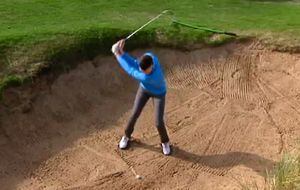
“And not once did I think about what had happened to me at the Gothia Cup, I didn’t have a single thought that I shouldn’t be there or that it was a risk.
“My gut feeling at the time was that this was a wee virus or something, a problem that would get sorted, and that playing for the first team was a chance which I couldn’t believe had come my way.
“Yet ultimately, it was to prove my last opportunity, as well as my first.”
On returning home to Ireland, Wright actually tried to play part-time, before quickly realising that the risk, compared to the reward, was way too significant.
Knowing the seriousness of his condition added to the concern, and on one occasion, whilst suffering another palpitation in the bath, his Mum actually thought they were going to lose him.
By the time Fabrice Muamba had collapsed with the same condition and remarkably and thankfully survived a substantial spell in cardiac arrest in 2012, Wright had undergone several operations and been fitted with a defibrillator prior to moving on to the next chapter of his life.
An initial foray into goalkeeping coaching bred resentment that he could no longer play himself and so, with golf one of the few sports that he could safely enjoy, he soon swapped one club, for a set of them.
As ever, he threw himself right into the new vocation, bringing his handicap down to three, studying for a PGA qualification, and spending several years as assistant professional at Royal County Down, one of the top clubs in Northern Ireland.
And then, a couple of years ago, with the passing of time came a renewed love of football, and a desire to get back involved.
Wright now coaches both football and golf for the Burns Skill School Ltd company run by close friends Aaron and Andrew Burns, including taking PE lessons at local schools, and is also on the first team coaching staff at Portadown-based Rectory Rangers in the Mid-Ulster League.
The ambition which first took him over the water to try his luck with Wolves, is back with a vengeance.
“I have realised that football is the road I want to go down again and the career I want to pursue, even if perhaps I’ve not got the precise idea just yet of what that looks like,” he says.
“I am studying for the badges, and would love to be a first team coach or assistant manager.
“I also have the mindset that coaching is something that won’t happen overnight, and it will take time.
“The more research I can do, the more reading up, the more experience, the better.
“I’m still only 27, and even if I can progress and complete my pro-licence within ten years, I’d still be very young.
“Whether I can one day get a position at a club in the Irish League or League of Ireland, or even in the national set-up somewhere, that would be unbelievable.
“I got married last year, and wouldn’t want to be moving away too quickly, but if anything ever came up across the water, I would find it very, very hard to say no.
“At the moment it’s going well, I’m enjoying it, and hopefully that will continue and I can carry on progressing and picking up more and more experience.”
That has included, thanks to Thelwell, who is now with New York Red Bulls, returning to Wolves 18 months ago to spend ten days observing various age groups in training.
His more recent visit last month was for far more poignant reasons, to attend the funeral of Alan Lovatt, whom, along with wife Karen, hosted Wright during his year at Molineux.
Describing the couple as ‘a Mum and Dad away from home’, Wright had very much leant on Alan’s counsel during his time at Wolves, and had remained in close touch, most recently to talk cricket via text message not long before Christmas.
He did also take the opportunity to enjoy Wolves’ 4-0 win at home to Espanyol in the Europa League, a sign of how much has changed since he was setting out all those years ago, but also perhaps a very slight reminder of just what might have been.
Wright himself suggests it is watching Northern Ireland matches that hurts more than Wolves – “when you look at the level Wolves have got to I don’t think I’d have been involved in that,” he says with a laugh.
But beyond the good humour, beyond the admirable stoicism, Wright remains infectiously positive about what was such a tough experience to take, especially at such a tender age.
“I look back with nothing but fond memories, even though what happened at that time is something that is going to affect me for the rest of my life,” he explains.
“For me you have to look at things positively, because if you are negative, then you are beat.
“I have a very strong faith, and that has been a big part of it all, along with the support of friends and family.
“I believe that God has a plan for me, and I know some people might find that strange to hear but I was brought up as a Christian and that faith is something I have clung to really strongly.
“To think of the timing of how it happened, and the fact I got that one game in, is something that I will never forget.
“My condition is often only diagnosed at post-mortem, and I am so grateful that my Mum and Dad weren’t left burying their son at 17.
“As to the after-effects, It’s strange that mental health wasn’t something that was being discussed over ten years ago – it just wasn’t a topic.
“I had heard about people with depression, but not perhaps the daily mental health struggles which I experienced for a time.
“I brushed it all under the carpet a little bit, but at the same time, I have to think about the positives.
“I experienced what any young footballer wants to experience, I played a first team game for a huge team that had just been promoted.
“I am really proud of that achievement and I still have a printout of what Mick McCarthy said about me afterwards – to have someone with his stature in football saying what he did is something I will always cherish.
“So don’t be sad that it is over, just be grateful that it happened.”
With that sense of perspective, empathy and communication skills, it seems difficult to believe that Wright won’t make a success of his chosen career as he steps up the pursuit in the coming years.
And it is always worth remembering that this is a story which could have had a far more tragic and devastating ending.
Wright still has his family, he still has his faith, and he still has his future.
And he will always have, always, that night at Vale Park.
Paul Berry will be writing features for the Express & Star looking back through Wolves' history

